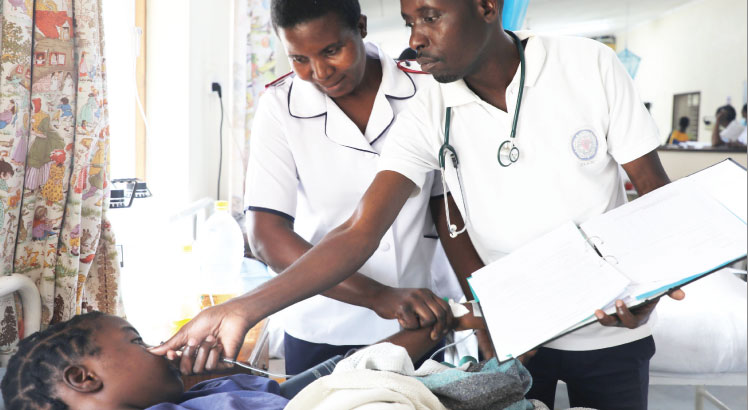Localising fistula treatment
As a new graduate in 2012, Lamusi Abudu was assigned to Mangochi District Hospital where women with fistula would be treated by visiting medical experts.
“The hectic work was beyond the clinical stuff I had learnt in college,” he recalls. “My first role was to help examine women and girls who were leaking urine and, sometimes, human waste.”
Unfazed Abudu worked on the project until 2016, developing vital skills and a passion for the job.
“In medical school, we learnt about fistula, but much of it was theoretical. We didn’t have the opportunity to acquire hands-on experience, especially in repairs. This was a specialised field” he says.
During the fieldwork, Abudu, now the clinical officer at Mangochi District Health Office, was surprised by the number of adolescent girls and women suffering from fistula.
Mangochi has high rates of teen pregnancies, a major cause of fistula.

The teen pregnancies in the district rose from 28 percent in 2010 to 36 percent in 2015, according to the Malawi Demographic and Health Survey of 2015. The findings show that 22 percent of women aged 15 to 24 experienced their sexual debut before reaching 15, against a national average of 13.9 percent.
Despite the high fistula burden, the funding for the fistula programme in Mangochi stopped in 2017. UNFPA, with funding from the Government of Iceland, stepped in.
Abudu joined the fistula repair team as support staff.
“After noting my passion, the surgeons invited me to observe while doing the repairs. This boosted my confidence and yearning to learn more,” he says.
In 2022, Iceland supported the establishment of a fully equipped fistula centre and trained district teams in obstetric fistula care. To increase awareness of fistula prevention and management, Iceland also supported the orientation of 26 health workers from Mangochi on basic fistula case management at Bwaila Fistula Centre in Lilongwe.
Abudu, one of the key staff at the newly established Lilja Fistula Centre, was selected to be trained as a fistula surgeon at Bwaila.
“This training is important to me,” he explains. “I have been involved in fistula repairs for years, but I lacked the practical skills to handle complicated cases. I hope to come out of this training a better and more qualified person.”
Abudu has learned to operate on fistula patients, classify fistula cases and care for those who have been operated on.
“Much as I have gained skills on fistula repairs, there are some fistulas that I can’t operate on,” he says. “For these, I need to refer to bigger hospitals such as Bwaila. Tempering with a complicated fistula may cause further damage and psychological trauma for the patient.”
Nurse-cum-midwife Monica Chagwamo worked in Mangochi District Hospital’s maternity ward before joining the Lilja Fistula Centre team last year.
She helps the patients get properly examined before the operation and recover well after the operation.
Chagwamo, who is also undergoing special training at Bwaila, says working in the fistula ward requires specialised skills “different from those we use in the maternity ward.”
“Here, we deal with women who are usually desperate as most would have either lost their child, chased from their families, and struggled alone with fistula. This requires sensitivity as most of them will have lost hope,” she says.
The training has transformed the way she cares for patients, states Chagwamo.
“The psychological aspect is a great addition to my experience,” she states. “Even after they have had a successful operation on the fistula, most of the fistula survivors still are worried if they will be accepted in their communities. That’s why we need to prepare them well psychologically so that we restore their confidence and the will to move on with life.”
The Lilja fistula treatment facility comprises an operating theatre, fistula ward and one-stop centre for survivors of sexual and gender-based violence.
Since it was opened in December 2022, nine fistula clients have been repaired. Cumulatively, 73 women with obstetric fistula in Mangochi have been repaired with funding from Iceland.





